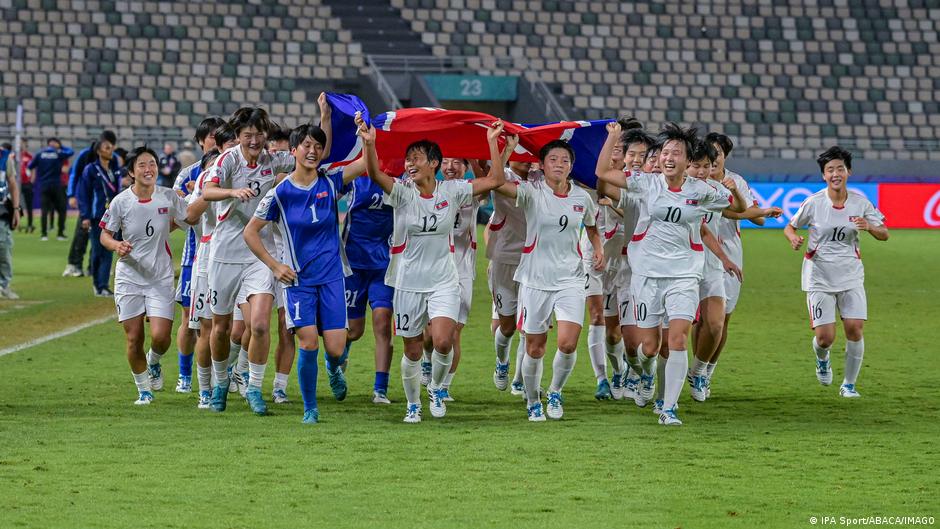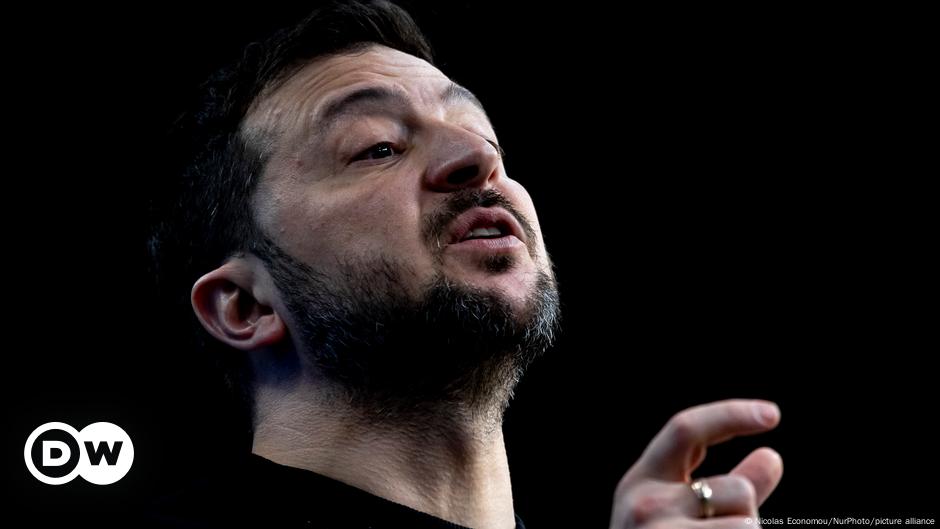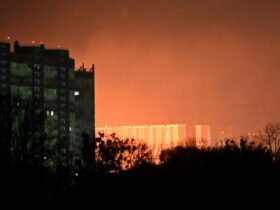North Korea women have won back-to-back U-17 World Cup titles by defeating the Netherlands 3-0 in Morocco. This was the fourth time the country won the contest.
North Korea’s women have cemented their position as the dominant force in women’s youth football, with the country’s under-20 team set to win its third World Cup in 2024.
But what is it that makes a state that, according to the United Nations, “has no parallel in the contemporary world” so good at youth football?
“International sport is one of the few ways to demonstrate their sovereignty, existence and identity to the international community, so this kind of major success, from their perspective, is an important opportunity where they can wave their national flag in front of an international audience,” Dr. Jung Woo Lee, senior lecturer in sport and leisure policy at the University of Edinburgh, told DW.
“At the same time, domestically, North Korea often uses sports as its propaganda tool to glorify its leaders and also tout how great their country is.”
A clear and conscious strategy
Football is popular in the country, but believing that the gap at the top in senior football is much harder to bridge than in youth football, North Korea’s leaders turned to women’s youth football, where the gap is more manageable. This is why the senior team has not benefited from success at this level in the last few years. This strategy is not about paths. It’s about winning.
“The gap between established and developing clubs is even greater because many European countries have a professional league, and they get more support from many different stakeholders,” Lee said.
“In youth football, I think European sports organizations put more emphasis on having fun while playing football. Whereas in North Korea, even if you’re 13 or 14, they’re involved in a very highly disciplined, highly organized and highly professional training regime, so they can excel at a young age.”
In Morocco, North Korea’s U17 team conceded only three goals in the entire tournament, and scored three or more goals on four occasions. It was a continuation of their last year’s form, while the 2024 U20 Women not only defeated Argentina 6–2, but made it three consecutive 1–0 wins en route to winning the tournament from the quarter-finals.
With the help of the Pyongyang International Football School where young girls are selected, developed and educated following a highly disciplined and scientific approach, North Korea saw an opportunity and took advantage of it.
Governance Status, Life Changing Awards
In the eyes of North Korea, this is also a victory for the communist regime.
“You need to remember that North Korea still maintains a very strong socialist and communist regime,” Lee explained. “Especially under Kim Jong Un, they try to compare the capitalist and communist regimes and show the communist regime as better than the capitalist one. Also, when I looked at some news reports in the North Korean media about the North Korean performance, they highlighted that because they are (under) the communist regime, they do whatever they can, even if they are physically tired.
“Then they compare those mentalities directly to capitalist countries. In capitalism, when athletes are physically exhausted and injured, there is no way to perform. They need to be replaced by their coach. But in a socialist system their will is more important than the professional opinion of the coach or any medical staff. So North Korea presents it as a better system.”
That psychological element has given the team an edge, but beyond the strong sense of patriotism and years of disciplined work lies the motivation of the life-changing prize.
Lee explained, “Although we often think of North Korea as being quite underdeveloped and highly agricultural and having a lot of hardships, the people living in Pyongyang are quite different. They are special in a way.”
As an incentive, he said, the regime could give players living outside the capital certificates of residence, which are required to enter Pyongyang. At the same time, many players have been given apartments.
This motivation should not be underestimated. Life in rural North Korea is difficult, with shortages in food and health care reportedly common. Living in a big city is quite different.
“This has a way of changing their lives. It’s kind of like winning the lottery,” Lee said.
What next for the brightest generation?
For star players like 2025 U17 World Cup top scorer Yoo Jong-hyang, or Cho Il-sun, a key player in both the U17 and U20 World Cup victories in 2024, the instinctive reaction is to wonder which WSL or NWSL team will try to sign her, but that would be to forget the context in which she lives and plays.
“I don’t think it’s impossible, but not that easy,” Lee said of the idea of both stars playing overseas.
“First of all, economic sanctions have now been imposed on North Korea,” he said. “And also, whenever North Korean players have joined a European league – there have been some instances in basketball where none of the salary has been sent to the players’ or agents’ personal accounts, rather it goes to the North Korean government account, so I think there’s another complication involved.”
Although much remains a mystery about this team, like the country, it cannot be denied that success at the youth level has always been the plan.
Edited by: Chuck Penfold
This article was updated to reflect North Korea’s U17 World Cup victory in November 2025.






Leave a Reply